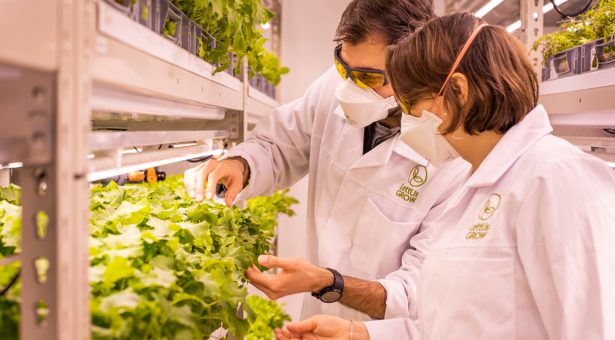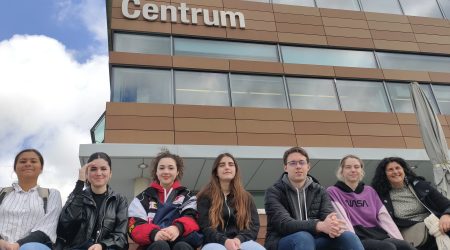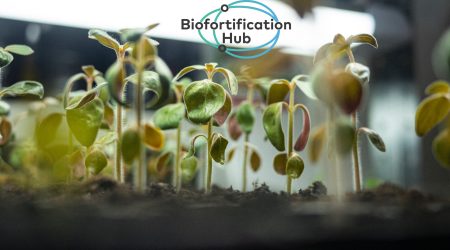Is vertical farming the future of agriculture?

Growing food in our increasingly variable climate is a challenge.
Vertical farming is a relatively recent development, which has the potential to allow us to grow crops in a controlled environment and providing an alternative approach to conventional farming.
Vertical farms are free from the pressures created by extremes and variations in our weather, isolated from pests, and allows crop growth at a wider range of latitudes.
However, developing indoor vertical farms requires a good understanding of all the requirements each crop plant will need for optimal growth and development.
To help make vertical farming more productive and sustainable, The John Innes Centre has teamed up with the indoor vertical agriculture company LettUs Grow, a Bristol based start-up is engineering novel indoor farm hardware and software to grow a variety of crops using aeroponics.
These systems use considerably less water than traditional agriculture and can dramatically boost crop productivity compared with hydroponics.
Calum Graham, a University of Bristol SWBio PhD student who is based at the John Innes Centre and part of Dr Antony Dodd’s group, completed a PIPS placement at the LettUs Grow HQ during autumn 2019.
At LettUs Grow he worked in the scientific research and development team, where his primary role was to optimise growth conditions and irrigation cycles to promote uniform crop growth.
His findings helped inform LettUs Grow about growing protocol and influenced their hardware applications to reduce water use. These changes could ultimately lead to more sustainable farms.
Calum also contributed to an article that sets out the ways that plants grown as crops interact with the technologies that drive aeroponic farms and led by Dr Antony Dodd, who also held a Royal Society Industry Fellowship at LettUs Grow.
This article provides biological insights into the reasons why aeroponic cultivation can improve productivity compared with hydroponics and proposes a new model for the interaction and retention of aerosol particles by crop roots, which Calum helped to refine and presented in the article.
The article also set out a number of strategic areas of future research that will be required to improve the productivity and sustainability of aeroponic vertical farms.
The relationship between the John Innes Centre and LettUs Grow relationship continues to expand, with PhD student Deirdre Lynch joining the institute to work in this area.
Deirdre is funded by the UKRI-BBSRC Norwich Research Park Doctoral Training Partnership and started her PhD in September 2020.
Deirdre said: “My interest in vertical farming was first piqued several years ago during my undergraduate degree at NUI Galway, when I stumbled upon a video online that showed the science and benefits of the emerging industry”.
The concept stuck with her as she learned more about modern agricultural practices and how unsustainable they can be in terms of land use, monocultures, nitrogen and phosphorus run-off, and pesticide use.
To Deirdre, vertical farming seemed to be an answer to these problems – a closed environment in which crops can be stacked, nutrients can be recycled, and pests can be controlled.
Deirdre’s PhD project involves collaboration with LettUs Grow, with a long-term goal to improve year-round growth consistency of crops in vertical farms, to ensure reliable yields during and outside traditional growing seasons.
Circadian rhythms play an important role in regulating crop production in vertical farms, because day and night conditions can be controlled by the grower. However, the performance of the crop under artificially-controlled conditions is ultimately determined by the genetics of the crop, which affect how it responds to its environment.
Through these links between scientists at the John Innes Centre and LettUs Grow, it is hoped vertical faming can become more efficient whilst also remaining a sustainable business.
Understanding the interaction between the circadian clock of suitable crops and these artificial growing environments will be a valuable step to boosting productivity while reducing costs and the collaboration is evidence of how scientists can work with industry to enhance existing technologies in order to improve the sustainability of future agriculture.
The image at the top of the page shows Calum’s colleagues Ricardo Lopes, a Plant Specialist at LettUs Grow and Chelsea Dow. It is reproduced here courtesy of Jack Wiseall, LettUs Grow.



